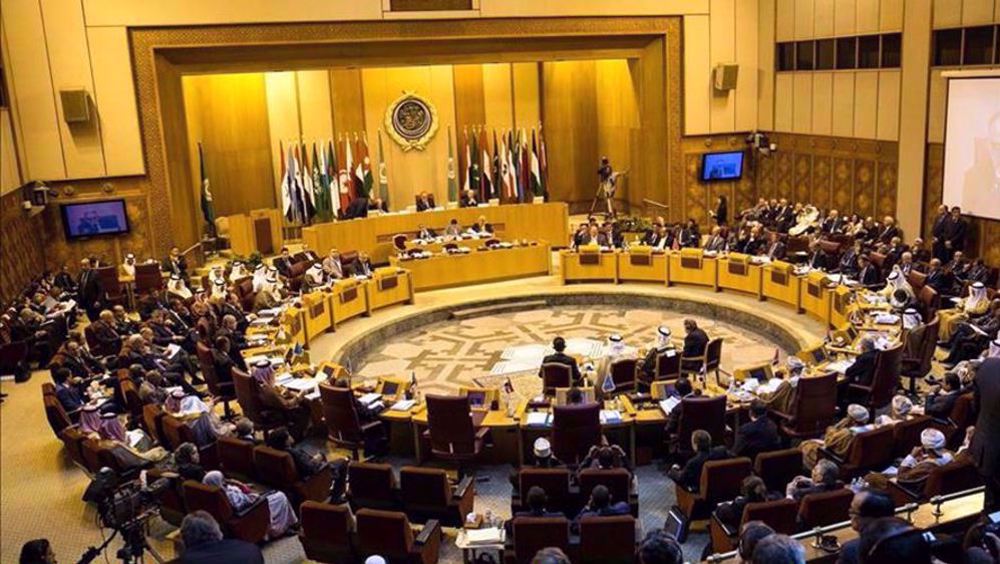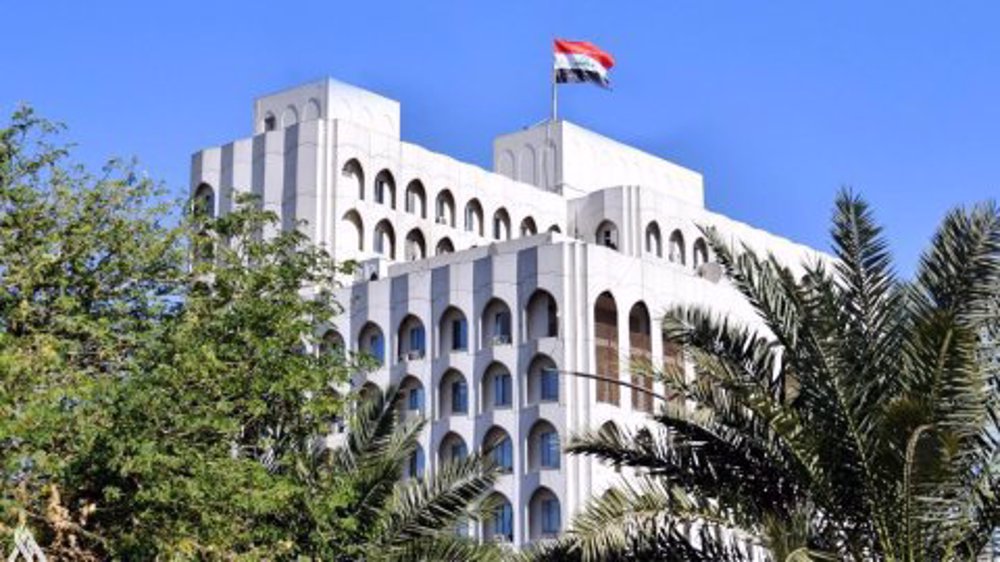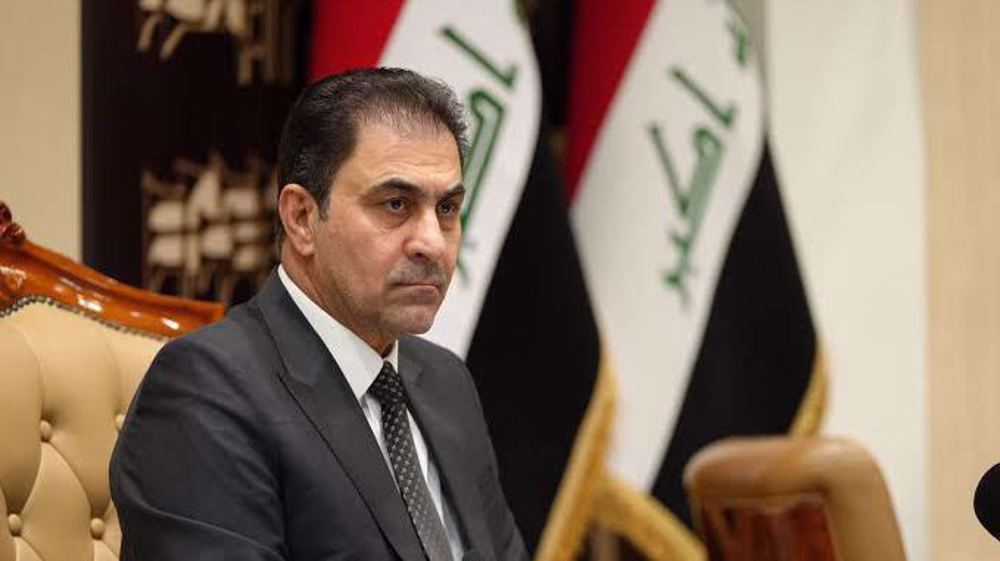Iraq summons four Western ambassadors over ‘interference in domestic affairs’
The Iraqi Foreign Ministry has summoned four Western ambassadors over “interference in internal affairs,” as a wave of protests over unemployment, corruption and lack of public services continues in the country.
“The ministry called in French Ambassador (To Baghdad) Bruno Aubert, British Ambassador Stephen Hickey, German Charge d'affaires Jochen Moller and Canadian Ambassador (Ulric Shannon), and Deputy Foreign Minister Abdul-Karim Hashem met with them,” the ministry’s spokesman Ahmed al-Sahaf said in a statement published on the official Twitter page of the ministry on Monday.
He added that “Iraq maintains its diplomatic relations with world countries on the basis of activating common interests and facing common threats. Given such a principle, Iraq lauds expansion of relations with many countries of the world by taking into account non-interference in their domestic affairs and preserving their sovereignty.”
بيان صحفي
— وزارة الخارجية العراقية (@Iraqimofa) December 9, 2019
استدعت وزارة الخارجيّة السيد برونو اوبير سفير فرنسا،والسيد ستيفن هيكي السفير البريطاني،والسيد يوخن مولر القائم بالأعمال الألماني مجتمِعين،كما استدعت السفير الكندي،والتقى بهم السفير عبدالكريم هاشم الوكيل الأقدم للوزارة على خلفية البيان المُشترك الذي أصدرته هذه السفارات pic.twitter.com/6zsyIvjYbf
“The Foreign Ministry rejects the envoys’ comments as an unacceptable intervention in Iraq's internal affairs, and a blatant violation of Article 1 of the Vienna Convention on Diplomatic Relations,” Sahaf pointed out.
The four Western envoys had earlier voiced strong support for the anti-government protests in Iraq, and condemned security forces over use of force against rioters and anarchists.
Protests have rocked primarily the capital city of Baghdad and southern areas of Iraq for two months over the failing economy and demand for political and anti-corruption reforms.
The rallies have, however, turned into violent confrontations on numerous occasions, with reports alleging that certain foreign-backed elements have been seeking to wreak havoc on the country.
Since October 1, more than 300 people have been killed in the country, according to the Iraqi parliament’s human rights commission.
Iraq’s parliament on December 1 formally accepted Prime Minister Adel Abdul-Mahdi’s resignation.
Abdul-Mahdi had submitted his resignation to the legislature a day earlier, following weeks of protests demanding he step down.
The 77-year-old Iraqi politician had announced in a statement on November 29 that he would submit his resignation to parliament amid anti-government demonstrations.
“I will submit to parliament an official memorandum resigning from the current prime ministry so that parliament can review its choices,” he said.
Abdul-Mahdi’s remarks came on the same day that Grand Ayatollah Ali al-Sistani urged lawmakers to reconsider their support for the government.
“We call upon the House of Representatives from which this current government emerged to reconsider its options in that regard,” Ayatollah Sistani said in a statement read out by his representative Abdul Mahdi al-Karbalaei during a weekly sermon in the holy city of Karbala.
VIDEO | Sydney protests demand action as Israel faces ICC warrant for war crimes
Iran to host ‘important’ ECO foreign ministers' meeting in Mashhad
Wounded in Israeli strike, health of Kamal Adwan Hospital's director worsens
VIDEO | Press TV's News Headlines
Iran reports 11% drop in domestic red meat supply
Arab League affirms support for Iraq amid Israel's threats of military action
VIDEO | Fierce fight in Southern Lebanon
Over 1000 medics killed in Gaza as Israel systematically targets hospitals




















 This makes it easy to access the Press TV website
This makes it easy to access the Press TV website